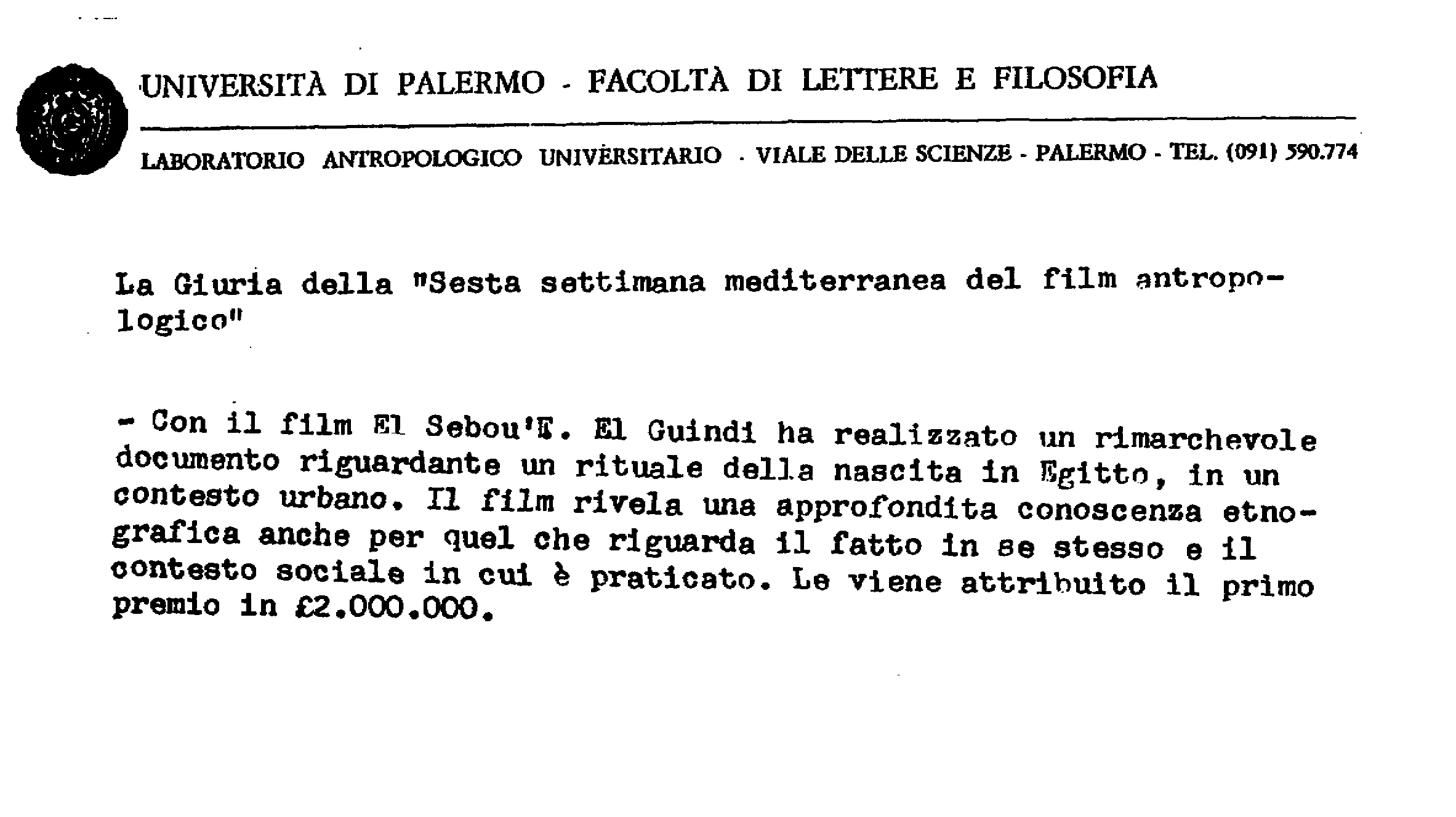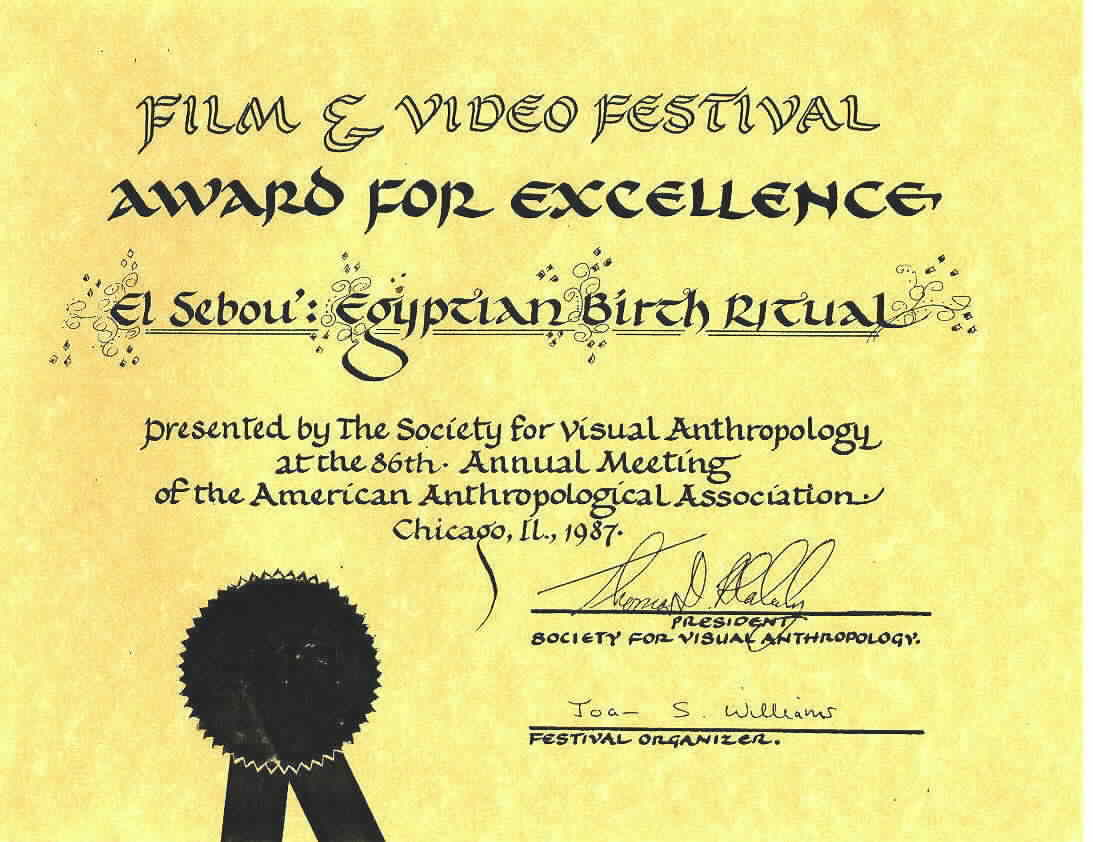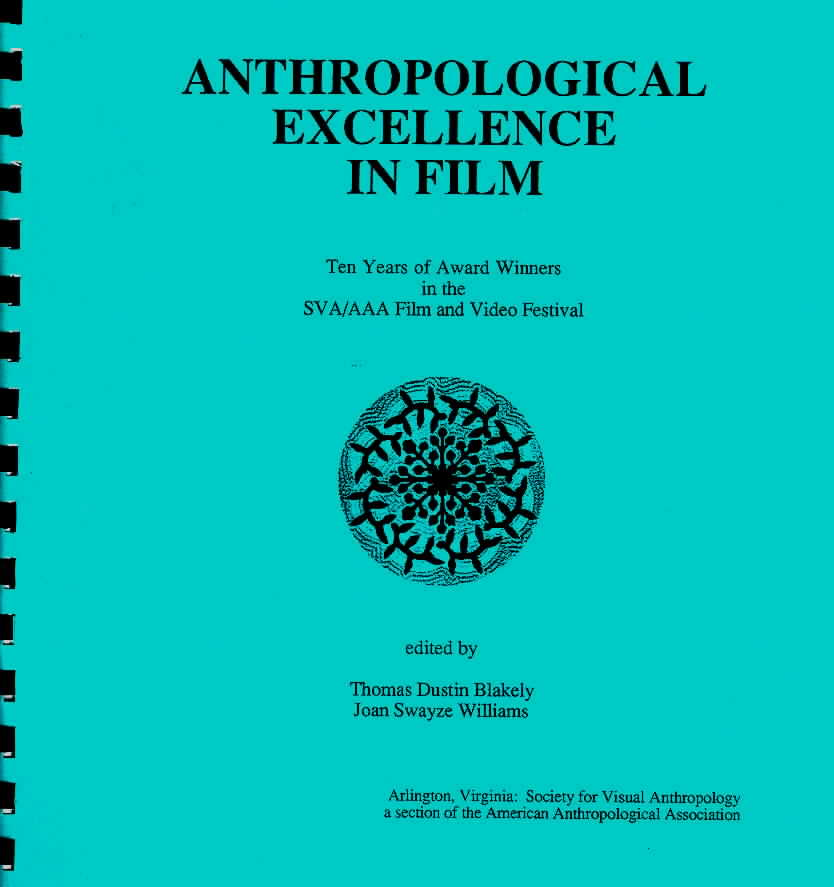

![]()

El Sebou': Egyptian Birth Ritual (1986) 28-min. Study Guide available (El Nil Research). In Egypt, a birth ritual called el-sebou', meaning "the seventh", happens on the seventh day following the physical birth of a child of either sex and is celebrated by Coptic and Muslim families of all status groups, rural and urban. Characteristic of this ritual is gender-linked imagery that is also manifest in the ritual clay pot. The ceremony celebrates the newborn's crossing a threshold from having neutral gender and neutral status into a world of gender and family. This particular sebou' is celebrated for twins, a boy and a girl, in a rising middle class Muslim family in urban Egypt. Anthropologist Fadwa El Guindi portrays the sebou' ritual as a rite of passage with the universal three phases of transition (separation, liminality, incorporation)} and as the key ceremony in an individual's life cycle until marriage. The film focuses on -- and shows the proveniences of -- a variety of objects and materials used in the ritual. The way the filming was done helps highlight the central role of the female ritual leader and provides a kinesthetic spatial sense of aspects of the ritual. The editing combines an analytic approach and an emic approach, allowing participants to speak for themselves without losing a broader anthropological perspective. Anthropologist/filmmaker: Fadwa El Guindi, 1987 Award for Excellence
![]() .
.